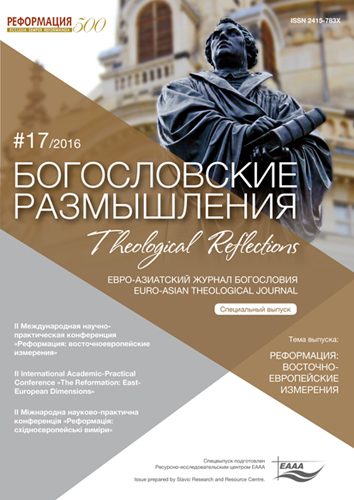The study of Protestant denominations in the Kiev Theological Academy in the XIX - early XX century.
DOI:
https://doi.org/10.29357/issn.2521-179X.2016.17.47Keywords:
Kiev Theological Academy, Orthodox Church, Protestantism, theological education, accusatory theology, comparative theology, history of Western confessionsAbstract
The article shows that the systematic study of history and dogma of Protestant denominations began in Kyiv only after the opening the Kiev Theological Academy in 1819. The author analyzes the educational programs and lectures on accusatory theology, comparative theology and history of Western confessions by Kiev Theological Academy professors: archimandrites Antonin (Kapustin) and Augustine (Hulyanytskiy), M. Yastrebov, A. Bulgakov and V. Popov. The author reconstructs the evolution of these disciplines during XIX - early XX centuries. Special attention is paid to the ideological debates about the goals and objectives of these disciplines. The author describes the features of Charters of Theological Academies from 1808-1814, 1869, 1884 and 1910-11 in relation to the study of Protestant denominations. Also provides information on the scientific achievements of the Kiev Theological Academy professors in the study of the history and theology of Protestant confessions.
Downloads
How to Cite
Issue
Section
License
Copyright (c) 2020 Volodymyr BUREHA

This work is licensed under a Creative Commons Attribution-NonCommercial 4.0 International License.
All articles published in the Journal are distributed under a Creative Commons Attribution-NonCommercial 4.0 International License
By submitting an article for publication in Theological Reflections: Eastern European Journal of Theology the author grants the editors the right to publish the article and distribute it in electronic and print form.
The author reserves all copyrights and the right to use the materials of the article in whole or in part for educational purposes, to write his own dissertations, to prepare abstracts, conference reports, oral presentations, etc., as well as post electronic copies of articles (including the final electronic version downloaded from the journal’s official website) on non-commercial web-resources without the consent of the editorial board and founders.



